Kolkata, 7th May 2016
Although India and China are striving to develop bilateral cooperation, few causes of tension crop up between the two countries. In the security realm, occurrences of Chinese soldiers crossing into disputed areas and China’s growing presence in the Indian Ocean are sources of avoidable friction in the relations.
In the economic realm, India has a large trade imbalance with China, due to the disproportionate costing policy of Chinese goods, Chinese competitiveness in export-oriented industries, and India’s economic and institutional problems. It is basically an aspect of Command economy over a free economy system
The 2012- 2013 leadership transitions in China and in 2014 election of Prime Minister Narendra Modi in India, have increased potential for bilateral cooperation. The two countries seek to work together on a growing number of issues, including stability in Afghanistan and climate change. In addition, during Chinese President Xi Jinping’s visit to India in September 2014, China pledged to invest in Indian industrial parks and high-speed rail infrastructure, and also energise their respective participation in BRICS.
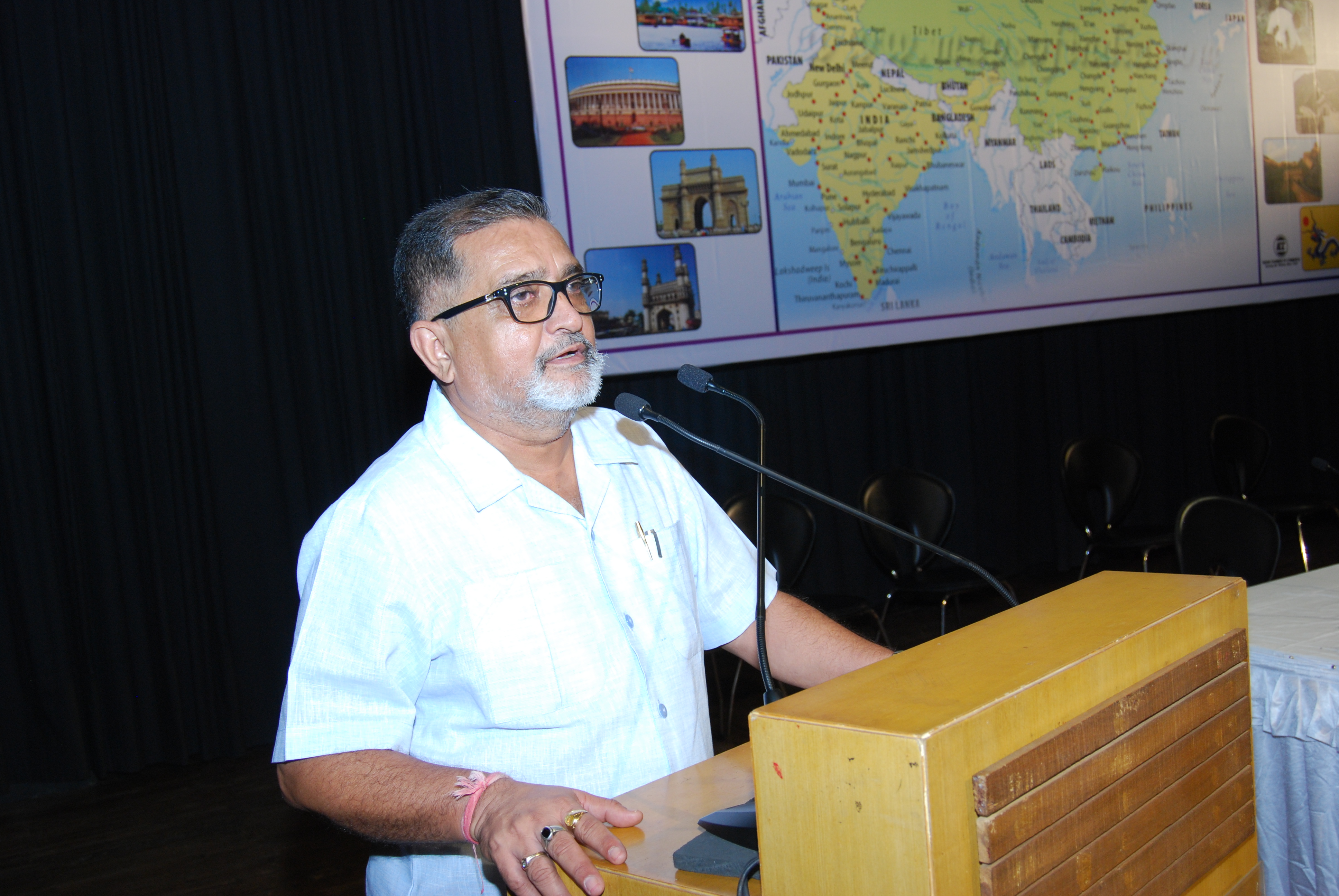
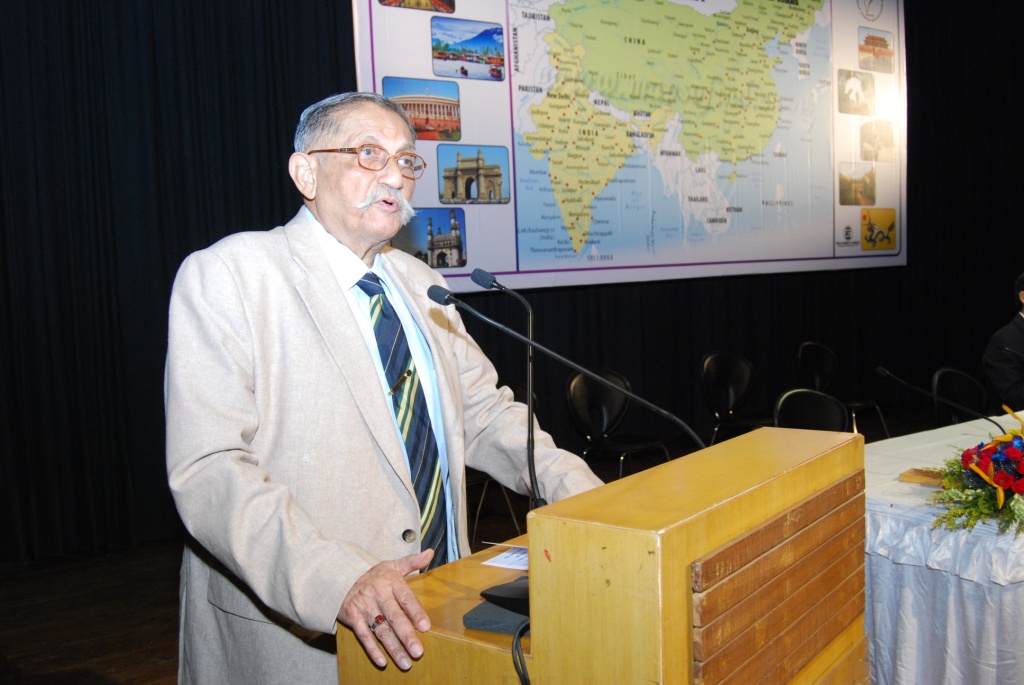
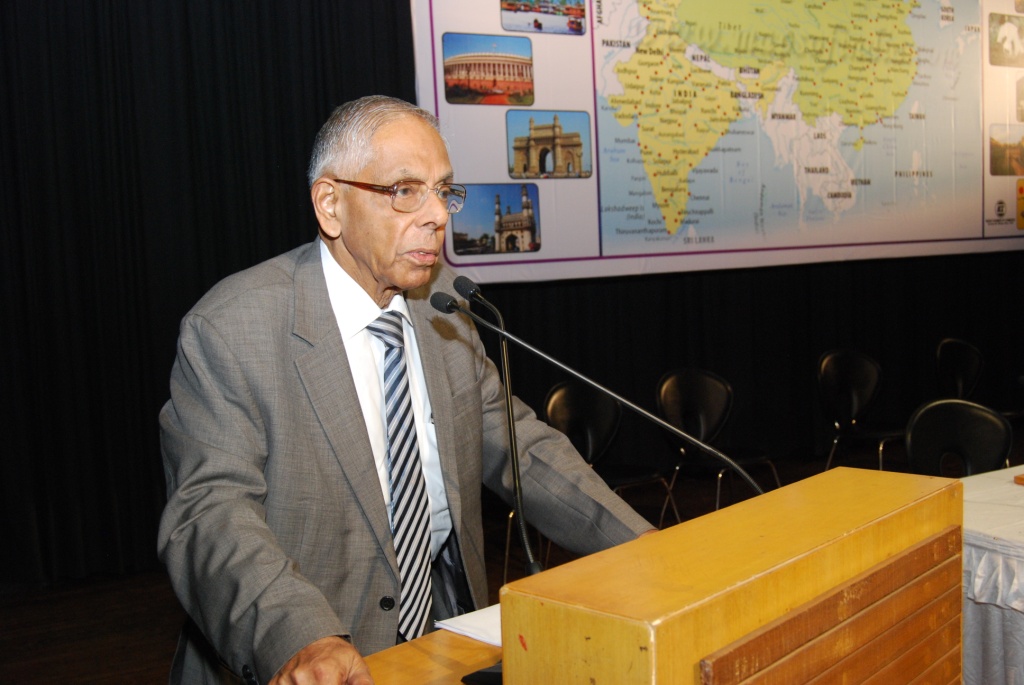 It’s a common practice as described by Mr. S. Dutta of CENERS-K. “Trust deficit between India and China exacerbates into offensive postures and generates more distrust,” he said. “ This is a historical global phenomenon as we have seen during US – Russia cold war era. The India – China relationship tends to degenerate into security issues with perceived desire of China for hegemony over natural resources of South East and South Asia region. On the other hand India is misperceived by China to be in the US – Japan – Taiwan – South Korea Axis and hence adds to distrust. It is the responsibility of both nations to allay these misconceptions and build a more trustworthy environment.”
It’s a common practice as described by Mr. S. Dutta of CENERS-K. “Trust deficit between India and China exacerbates into offensive postures and generates more distrust,” he said. “ This is a historical global phenomenon as we have seen during US – Russia cold war era. The India – China relationship tends to degenerate into security issues with perceived desire of China for hegemony over natural resources of South East and South Asia region. On the other hand India is misperceived by China to be in the US – Japan – Taiwan – South Korea Axis and hence adds to distrust. It is the responsibility of both nations to allay these misconceptions and build a more trustworthy environment.”
Although both governments seek to reduce tension in the relationship, the potential for competition, miscalculation, and conflict between the two countries persists. So long as the Tibet issue and border disputes in Arunachal Pradesh and Aksai Chin continue.
Major General Arun Roye (AVSM, VSM, Retd. Former GOC, Bengal Area), Executive Director of CENERS-K points out, “The Adage ‘enemy’s enemy is a friend’ explains China’s friendly approach to Pakistan. The huge financial and strategic assistance assured to Pakistan in return for building a road to connect China with Gwadar port of Pakistan only indicates that China’s all-weather friendship with Pakistan remains intact, while posing a threat to India’s security. Importantly, it gives an alternative to Oil Pipeline and sourcing to both Pakistan and China. India should not be seen to grudge or complain on this aspect, but build its own resources and facilities to counter-balance the advantage accruing to China, if any, by this act of Pakistan.”
The political relationship between India and Pakistan has always got prominence so far as India’s Foreign and Defence policy is concerned, but the problem involving the thr delineation of a mutually acceptable boundary has plagued relations.
CENERS-K seeks to bring this issue of importance in the discussion forum for an amicable solution. CENERS-K (The Research Centre for East and North East Regional Studies, Kolkata) is a premier think-tank based in Eastern India to provide a forum for research, discussions and debate concerning development, peace and security in the Eastern hemisphere as a whole and the Eastern and North-Eastern states of India in particular.
About CENERS-K :
Established in 2007-2008, CENERS-K has organized many events, the most recent one in Bangladesh, related to economic development, national and international security, which includes energy, environment, ecology and water. These events, some held in partnership with other similar bodies, have been well attended with the active participation of Governors, Central Ministers, Chief Ministers and the best known subject experts. Gen. S. Roychowdhury, PVSM, former Chief of Army Staff is the Patron of CENERS-K and the membership consists of researchers, scholars and experts from defense, academia, former Bureaucrats, police officers, journalists and the industry.
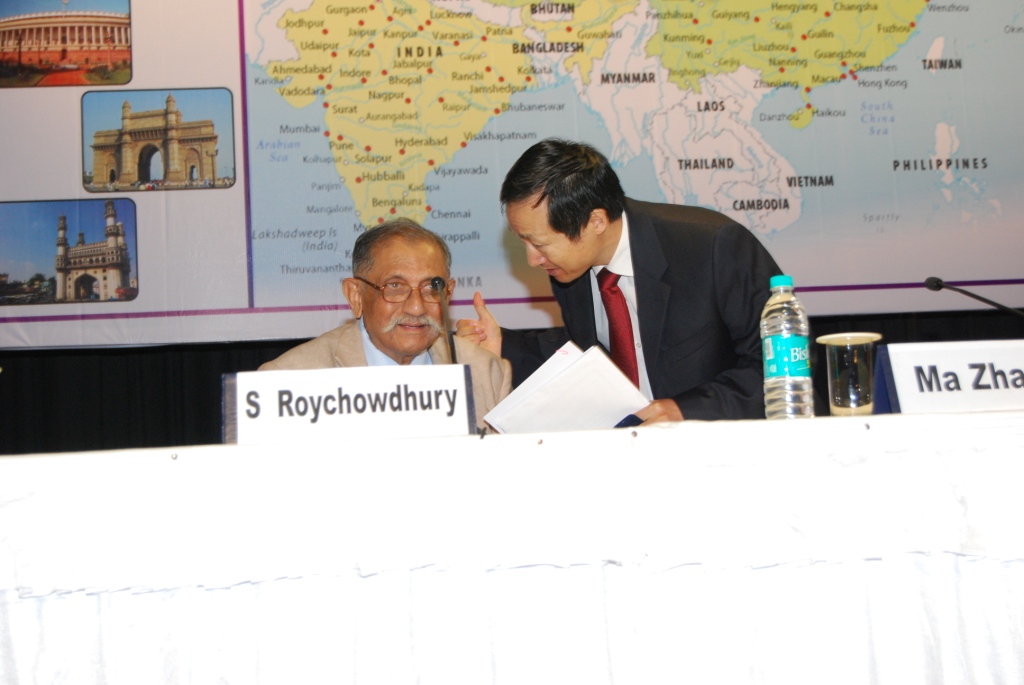
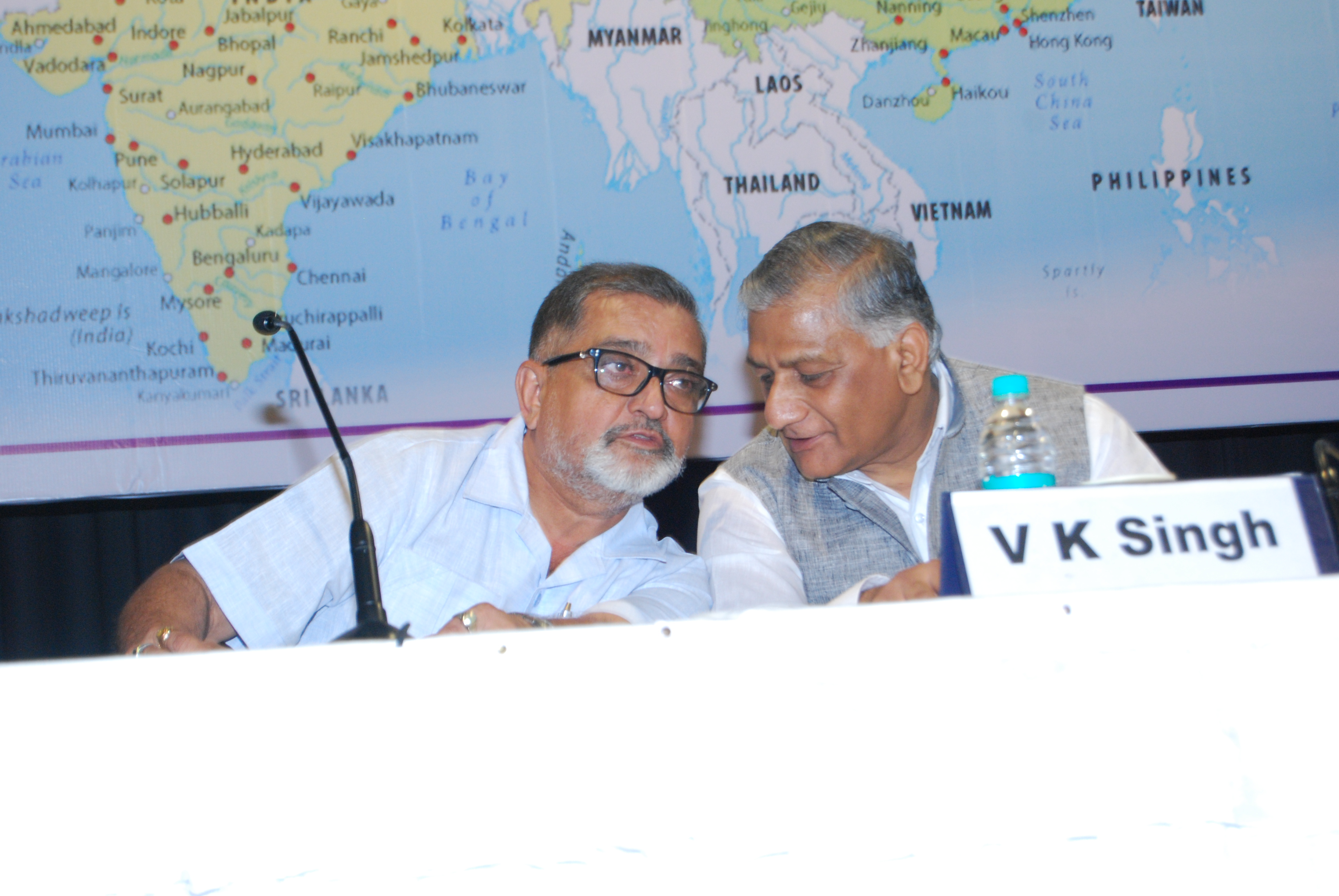
FAQS
1.Q. India and China have a trade partnership of about 70 billion dollars now. China also invested 20 billion dollars in India to help in infrastructural projects, including smart cities. Can we say that things are changing in the Indo-Sino relationship?
A. The answer is YES and NO.
YES : The relationship is evolving economically ALTHOUGH GREATLY TILTED IN China’s favour for the present
.
NO : The China-Pakistan relationship continues to plague India in more ways than in past.
2.Q. The border issue has been a controversial one since long, which leads to several face offs on the border, what is the solution?
A. China has resolved most of its border issues with neighbours, including Myanmar, where China agreed, in 1960, to the concept of existence of McMahon line. It is difficult to fathom why this concept was not extended to India. Perhaps a more comprehensive approach to the problem wherein all three sectors are discussed concurrently may yield results. This is for the two Govts to decide.
3.Q. China is not in favour of the Dalai Lama being sheltered in India. Do you think India should change its stand?
A. The policy to provide shelter to Dalai Lama is a policy that all Govts have adopted, notwithstanding the hue of the Govt. India has a history of absorbing all religions and classes down through the last millennia. This action is no different.
4.Q. Why is China’s closeness with Pakistan, and the recent huge investment seen with contempt by India?
A. India treats China’s closeness with, and huge investment in, Pakistan perhaps with anxiety, but certainly not with contempt. An economically and politically viable Pakistan is in India’s interest.
5.Q. China is the biggest Indian neighbour and both are emerging countries. Also both the nations have areas of overlapping interest and differences. How do they go forward without interfering in each other’s interests?
A. Given the baggage of past history, there may not be any significant step by either nation, concerning the area(s) of discord, and, which, will not be treated as interference
.
6 Q. There is great suspicion between the two countries of each other’s activities. Chinese projects of Karakoram highway project, South China Sea, Silk Road project, Pearl of string theory and border activities of Chumar have generated huge suspicion in India. The closeness of India to USA, Japan, Vietnam, etc. generates fear in China of India becoming part of its entrapment. Don’t you think the lack of cooperation and confidence-building measures are the reason behind it?
A. Any step by India or China to advance their own interests cannot but create suspicion in the other nation, particularly where the end mission is economic or security interest. On the other hand, if there is synergy in co operation whereby both nations are benefited by an action there shall remain no discord
7 Q. Aksai Chin in Ladakh and Tawang in Arunachal Pradesh region are the main areas of dispute between the two countries. The 1962 war in which India lost the Aksai Chin region has created great doubts about Chinese intentions on border disputes. China claims Arunachal Pradesh to be part of Tibet. Both countries failed to solve this dispute despite formation of a committee comprising special representatives. What is the way out?
A. Road into Aksai Chin was built by China years before the 1962 War. This road also provided them with administrative control over the area. As stated above the solution is a holistic approach where both nations gain from an agreement.
8 Q. Why do you think the Government of India is skeptical while dealing with the issues of Aksai Chin and Tawang with China, as in comparison to Pakistan, the issues is not raised in that level?
A. Relatively lesser assertive nations have always looked at the action of apparently stronger nations with doubt, if not suspicion. At the cost of repetition, it is reiterated that the entire continuum of issues between the two nations has to be treated holistically.
9 Q. Don’t you believe the huge mistrust between the two countries needs to be removed and the political class has the main responsibility? People to people contact needs to be relaxed and the historical cultural links need to be further strengthened. The 21st century belongs to Asia if these countries work in coherence with each other, rather than in hostile mistrust.
A. People-to-people contacts can certainly lower mistrust, especially when democratic and socialistic norms sets in. But that is crystal gazing into the future.
10 Q What is your opinion about the Uighur Issue of Dolkun Isa and Indian action to cancel the visa after China’s sharp reaction to India’s failed Masood Azhar attempt at the UN.
A . Q1 Theatrics, chest thumping and loud media engagements are no substitutes for professional diplomacy and diligence. On the contrary, these bring diminishing returns.
